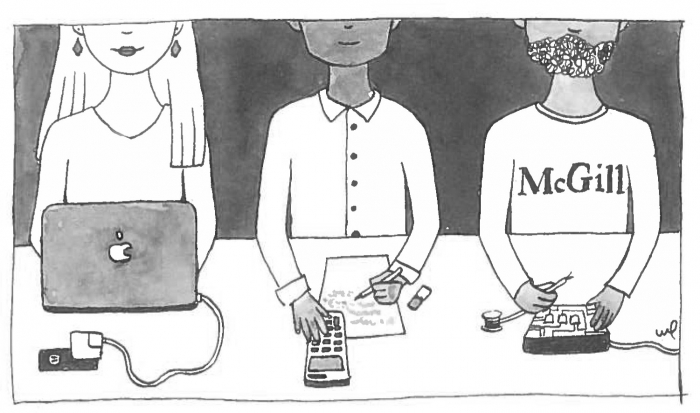On Nov. 1, McGill’s Faculty of Engineering unveiled the Engineering Equity Ambassador Program. Faculty support staff and professors can volunteer to receive training to become an equity ambassador and serve as a resource for anyone in the engineering community that needs a safe space to discuss equity issues. The program’s intention is to address the Faculty’s commitment to dealing with the equity issues facing underrepresented groups in engineering .
The program was developed by the Faculty of Engineering in collaboration with the Social Equity and Diversity Education (SEDE) Office. Ambassadors will meet confidentially with anyone in engineering facing an equity issue and direct them to the appropriate resources.
Currently, there are five ambassadors–two professors and three faculty staff–who have volunteered for the program and have gone through equity and active listening training with SEDE. However, as Associate Dean Fabrice Labeau explained, the goal of the ambassadors is not only to act in an advising capacity, but also to provide feedback to the Engineering Equity Committee.
“Part of the role of the ambassadors is to report back every year [to the Engineering Equity Committee] on what they’ve heard […] in an anonymous fashion, [and inform future faculty policy],” Labeau said. “If there is a systemic problem in our community, we want to know about it and we can do something about it.”
According to Tynan Jarrett, a SEDE Equity Education advisor who helped develop the project, the ambassador program is a product of student demand for more action on equity.
“[The ambassadors] emerged as one piece of various equity related projects that have been going on in the Faculty of Engineering,” Jarrett said. “Basically, there’s been a lot of student energy in organizing [initiatives] around equity within the faculty over the last three to four years.”
Disproportionate representation of men in engineering compared to women has been well publicized. According to McGill Enrolment, this year the Faculty of Engineering student body is 28.5 per cent female, one of the greatest gender disparities among all McGill faculties.However, Jarrett says the scope of the ambassador program is more than just gender equality.
“[The program is] intended to address equity in the broadest sense, so gender, of course, […] but also the experiences of indigenous students, experiences of [the] LGBTQ population within the faculty, and certain [minorities] that are very underrepresented in the faculty, ” Jarrett said.
According to Jarrett, certain demographics’ negative experiences in engineering are due to social discrimination.
“It’s not a faculty-specific problem, it's a society-specific problem, and we know that bias exists across the board both within and outside of McGill […],” Jarrett said. “So, yes, there's bias, so, yes, there’s discrimination.”
However, according to Labeau, the disparity in representation of certain demographics in engineering–such as the smaller proportion of women and minorities in the faculty–is not necessarily a symptom of a disparity of treatment, but of systemic barriers for certain marginalized groups.
“I don’t think there is any study out there that will conclude that [there is a disparity of treatment leading to a disparity of outcomes] definitively, but there are a lot of studies that will show that there’s systemic barriers,” said Labeau. “[And] I think our job is to try […] and remove these systemic barriers.”
Susanne Baumann-Moroy, a Human Resources advisor and equity ambassador in the Faculty of Engineering maintains that, fundamentally, the goal of the program is to increase discussion and identify fundamental issues.
“Through the discussion, you sometimes better define the problem […],” Baumann-Moroy said. “It’s often that you label a problem […] as harassment or a racial [issue, but] sometimes it’s an administrative or academic inequity that has nothing to do with [either].”









